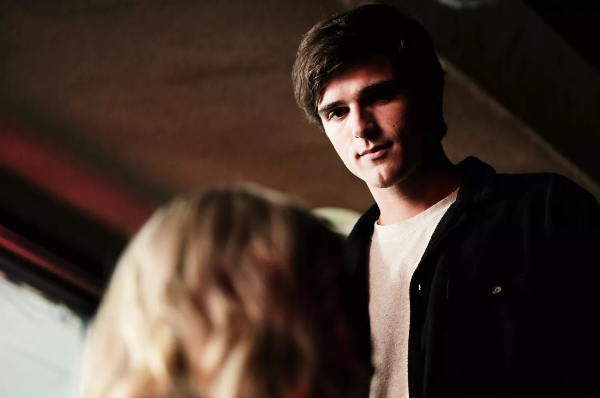Movies
Euphoria Season 3: A Liberating Turn, Promises Jacob Elordi
1. Fresh Ground: Elordi’s “Incredibly Liberating” Experience
When Jacob Elordi stepped back into the world of Euphoria for its forthcoming third season, he described the experience as nothing short of “incredibly liberating.” Having been known for his brooding portrayal of Nate Jacobs—and earlier for more conventional teen-romantic fare such as The Kissing Booth—Elordi explained that in Season 3, he “got to play something so sort of far out from what I’ve done before.”
This choice of words matters because it signals that Euphoria is not simply continuing the same beat but intentionally pushing into uncharted territory, at least for its star. The show, created by Sam Levinson, has always been bold, stylized, and emotionally charged. Yet even given that, Elordi’s description suggests the third season brings something significantly different: a departure from the familiar ensemble-drama mode, a shift in character focus, and a new creative energy.
Elordi emphasized that Season 3 felt “incredible” during filming and that, for him personally, it represented a major artistic release. By highlighting the word “liberating,” he implied not only artistic freedom but also a loosening of narrative constraints. The show may explore new angles, riskier themes, or a more daring structure.
For audiences, that’s intriguing. When a lead actor signals that he felt free and creatively challenged, it usually means the show will reflect that transformation. Elordi’s enthusiasm suggests that viewers can expect something more visceral, experimental, and perhaps even surreal.
In a TV landscape often criticized for safe formulas, this kind of promise stands out. Given Euphoria’s history of pushing emotional and visual boundaries, Elordi’s comments hint that Season 3 might not simply revisit old traumas—it might reinvent them entirely.

2. A Singular Storyline: Doing Something Different
One of the most intriguing revelations from Elordi’s comments is that his storyline in Season 3 is “really singular.” He explained that he had little knowledge of the other storylines being filmed and compared the secrecy to “FBI files.” That means even he will experience the show as a viewer for the first time—something he hadn’t been able to do before.
What does that suggest? For one, it points to a creative restructuring of Euphoria’s storytelling approach. Traditionally, the series has woven together multiple teenage lives—high school struggles, relationships, addiction, and self-discovery—into a densely interlinked ensemble narrative. A “singular” arc implies that Elordi’s narrative may be largely isolated or self-contained, focusing deeply on Nate Jacobs’ individual journey rather than constantly intersecting with others.
He also hinted that the show’s secrecy created a sense of mystery and anticipation even for the cast. The idea of compartmentalized storylines suggests that the production intentionally withheld information to preserve narrative surprises, enhancing both authenticity and suspense.
This move could signal a significant creative pivot. Euphoria previously experimented with character-focused specials between Seasons 1 and 2—episodes that centered almost entirely on Rue or Jules. Season 3 might expand on that concept, turning entire episodes or arcs into intimate, psychological explorations of a single character.
If so, it could fundamentally change how audiences experience the show. Rather than bouncing between multiple emotional threads, viewers might instead follow one character’s journey in depth, exploring inner conflict and transformation. The result could be a more cinematic, introspective storytelling style that highlights emotional realism and character growth.
Elordi’s excitement about not knowing the full picture indicates how immersive and unpredictable Season 3 will be. It creates the possibility of more suspense, more emotional truth, and a sense of mystery that even the actors get to share with the audience.
3. “Clever and Cinematic”: Elevated Vision from Sam Levinson
Elordi also praised showrunner Sam Levinson, describing the upcoming season as “incredibly clever and cinematic.” These words are particularly important given Euphoria’s reputation for visual brilliance. Levinson’s directing style—defined by neon lighting, haunting camera work, and emotionally charged aesthetics—has already set a new bar for teen dramas. Yet Elordi’s remarks imply that Season 3 is taking this signature approach to another level.
The term “cinematic” suggests something beyond conventional television. It hints at longer takes, more film-like pacing, and storytelling that prioritizes atmosphere and emotion over simple plot progression. The new season might adopt a structure closer to independent cinema: less linear, more visual, and deeply immersive.
Meanwhile, describing the season as “clever” signals intellectual sophistication—a sense that the narrative will play with time, perspective, or audience expectation. The story could unfold in unexpected ways, revealing layers of meaning through symbolism or non-traditional structure.
Combining “clever” and “cinematic” is particularly promising. It implies that the show will blend narrative intelligence with its already stunning visuals. Instead of just looking beautiful, Season 3 might feel more purposeful—each camera movement and lighting choice reinforcing deeper psychological themes.
For Levinson, this could be a creative breakthrough. Euphoria has sometimes faced criticism for its sensationalism—its heavy use of shock, sex, and stylized pain. A more refined, “clever” approach could balance that intensity with emotional maturity and depth.
Elordi’s trust in Levinson also speaks volumes. The actor’s collaboration with the creator seems rooted in mutual respect, with Elordi giving credit to Levinson for crafting something “incredibly” innovative. It’s clear that both are striving to evolve the series from raw teenage chaos to something more introspective, cinematic, and artful.
If the first two seasons established Euphoria as a cultural phenomenon, Season 3 looks poised to define it as a piece of enduring, auteur-driven television.
4. New Cast, High Stakes & Evolution of the Series
Season 3 of Euphoria is shaping up not only as a creative reinvention but also as a major expansion in scale and ambition. Following the emotional turbulence and tragedy of Season 2—which ended with a death, an arrest, and a devastating breakup—the new season promises to explore the aftermath with higher emotional stakes and broader perspective.
A wave of high-profile new cast members has joined the returning ensemble. The new faces reportedly include seasoned actors and fresh talents alike, hinting that the series will bridge generational gaps and widen its narrative lens. With the inclusion of well-known industry veterans, Euphoria may be expanding beyond its high-school setting to address more adult, real-world contexts.
The returning cast—led by Zendaya, Sydney Sweeney, Hunter Schafer, Alexa Demie, and Jacob Elordi—will anchor the familiar emotional landscape. However, the infusion of new characters introduces untapped storylines that could reshape the dynamics entirely. The introduction of older or more complex characters suggests that Euphoria might begin exploring consequences, parenthood, power, and identity in a way that feels more grounded and mature.
Elordi’s comments reinforce this evolution. His statement that he played something “far out” and “liberating” suggests that Nate Jacobs may face experiences or transformations that take him outside the confines of high school life. The character might confront adulthood, responsibility, or redemption in a new environment.
In addition, the long production timeline—culminating in a planned spring 2026 premiere—signals that the creators are taking their time to craft something deliberate and innovative. This extra time could mean more intricate cinematography, stronger writing, and greater attention to emotional truth.
Ultimately, the combination of new cast members, narrative reinvention, and creative boldness positions Euphoria’s third season as a potential turning point for the series. It’s not just a continuation; it’s an evolution.
5. What Fans Can Expect — And Why It Matters
So, what can fans truly expect from this new chapter of Euphoria, and why does it matter? Drawing from Elordi’s insights and the show’s creative trajectory, several key themes emerge.
1. A shift in tone and form:
With Elordi describing Season 3 as “far out” and Levinson’s vision as “cinematic,” viewers can expect episodes that are more experimental and emotionally sophisticated. The series might experiment with pacing, structure, and imagery—possibly resembling a psychological film anthology more than a traditional TV season.
2. A deeper dive into individual psychology:
Elordi’s “singular storyline” comment suggests that Euphoria may focus more intensely on one or two characters at a time. This structure allows for richer emotional exploration, letting audiences see what drives each character beyond surface-level conflict.
3. Expansion beyond high school:
The addition of mature characters and complex adult storylines points to a new era. The teenage world of Euphoria may give way to a broader exploration of early adulthood—where choices have consequences, relationships mature, and the search for identity takes on new forms.
4. Elevated visual and narrative craftsmanship:
The promise of something “clever and cinematic” signals more sophisticated direction and cinematography. Expect surreal dream sequences, symbolic framing, and meticulously crafted visuals that align with the psychological tone of the story.
5. Emotional consequences and continuity:
Season 2 ended with major unresolved threads. Season 3 seems set to pick up those emotional pieces—exploring how loss, guilt, and survival shape each character. For a show known for chaos, this could be its most reflective and emotionally resonant chapter yet.
Why does all this matter? Because Euphoria has always mirrored the complexities of modern adolescence—addiction, trauma, love, self-image, and societal pressure. As its characters age, the show’s challenge is to remain authentic while evolving. Jacob Elordi’s description of Season 3 as “incredibly liberating” indicates that the series isn’t just repeating itself. It’s embracing change—growing alongside its characters and audience.
For fans, this promises renewal: a return to the unpredictable energy that made the series compelling in the first place. For critics, it offers a chance to see whether Euphoria can transcend its controversy and establish itself as a genuine work of television art.
If Season 3 fulfills its potential, it could redefine Euphoria’s identity—transforming it from a provocative teen drama into a mature, psychologically rich narrative about growth, consequence, and freedom.
Elordi’s teaser has already reignited excitement. He’s revealed just enough to intrigue without spoiling, promising that Euphoria’s next chapter will be bold, surprising, and—most of all—liberating. As the countdown to its 2026 release continues, fans can expect not just another season but a full creative reinvention of what Euphoria means in the modern television landscape.
From: Teetopiaworldus
